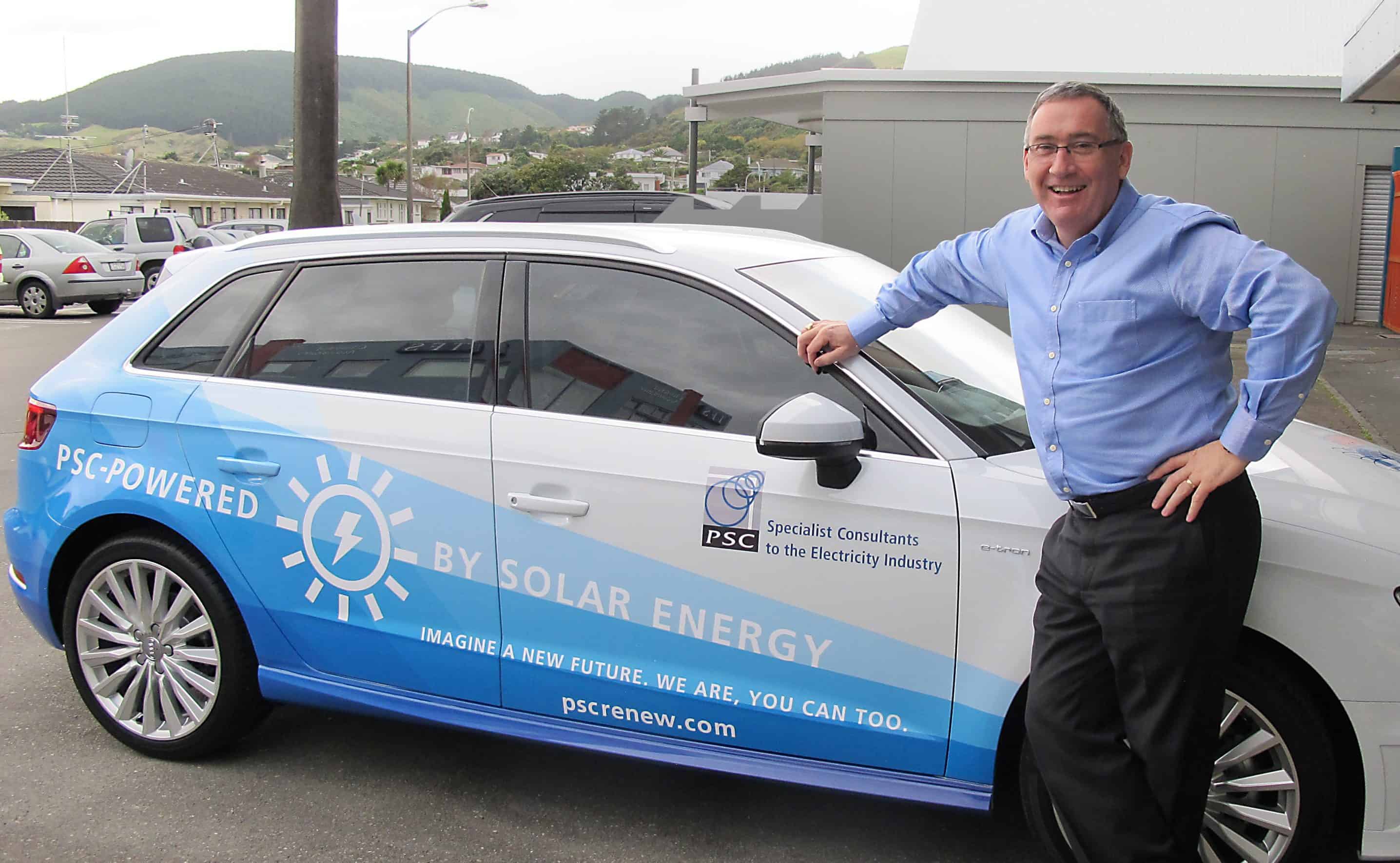
Project description
The PSC Solar EV Charger Project intended to investigate the feasibility of running PSC electric vehicles entirely on solar generated electricity. Achieving this goal would result in benefits including PSC reducing fossil fuel consumption, air pollution, and CO2 emissions. We anticipate that the concept will appeal to individuals and businesses who own both solar arrays and electric vehicles, and who wish to exercise an ethical choice in selecting where the power for the vehicles comes from.
How it works
PSC’s Solar EV Charger Project continually monitors the power (kW) and energy (kWh) production at our own small solar arrays scattered around the globe. These arrays are primarily sized to offset the power consumed in our own offices, rather than to inject into the larger grid. Our first array rated at 10kW is mounted on the roof of our offices in Wellington, New Zealand.
We switch the charging supply to electric vehicles using small charging modules plugging into any 230V outlet and with wireless internet connectivity. Our first electric vehicle is an Audi A3 e-tron hybrid plug-in, being trialed for all-electric commuting in Wellington, New Zealand.
PSC’s Solar Charging Master Station coordinates the power and energy production of the solar arrays with the power and energy supplied to the electric vehicles. The coordination is based on two alternative power and energy reconciliation models:
National power model
Real-time National Solar Power Reconciliation
When PSC injects solar power into a network, we are entitled to simultaneously charge EVs on the same network with the same amount of power.
- PSC solar panels around New Zealand inject power into the grid
- PSC electric vehicles are charged from any 230V power outlet
- Charging control scheme switches chargers to ensure PSC vehicle charging power does not exceed PSC national solar power generation in real time
Global energy model
Historical Global Solar Energy Reconciliation
When PSC’s Solar EV Charger Project generates solar energy and displaces non-renewable generation, we are entitled to later charge EVs anywhere in the world with an equivalent amount of energy (a form of ‘Carbon Credits’).
- PSC solar panels in Australia displace coal and gas fired generation
- PSC electric vehicles in Australia and New Zealand are supplied with locally produced energy
- Charging control scheme switches chargers to ensure PSC vehicle charging energy does not exceed historical PSC global solar energy production
Electricity pricing arbitrage
When choosing renewables a sacrifice is typically made by paying a higher price for renewables over non-renewables. However in the case of the PSC Solar EV Charger there may be an opportunity of arbitrage in the electricity pricing resulting in making a profit within the EV Charger sub-business, depending on where the solar arrays are installed, and where the electric vehicles are being charged.

If we could harness the power of the sun, but couple it with thoughtful, socially orientated investments, we might just be able to really make a difference…instead of sitting back and waiting for others to show the way, we are embracing the technology and learning and evolving from the challenges.

